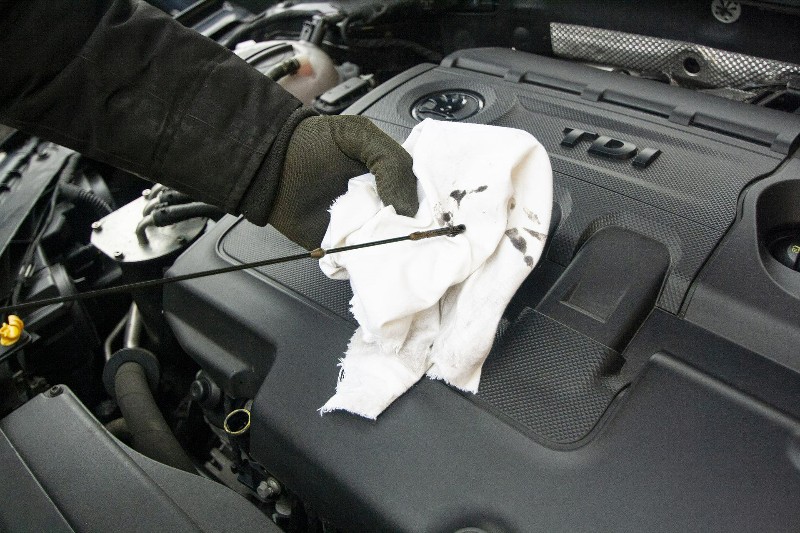Nobody raises an eyebrow when smoke comes out of a vehicle’s exhaust as it’s designed to safely emit harmful gases. But it quickly becomes concerning when smoke comes out of the steering wheel. In this article, you’ll learn what can cause smoke to come out of your steering wheel and how you can fix it.
The reason why smoke comes out of steering wheels is due to malfunctioning or short circuits of the electrical components in the steering wheel or compartment.
You should always take any smoke or burning smell that comes out of your steering wheel seriously for safety reasons. Continue reading to learn more about the causes of steering wheel smoke and what to do if it happens to your vehicle.
Your Vehicle Has Several Electrical Components
As you may already know, your vehicle has several electrical components that use wires and other materials that can conduct electricity. When two wires come in contact, a spark occurs which can result in smoke coming out of your vehicle. Also, old electrical parts can short circuit, also resulting in the emission of smoke. So, whenever you see smoke coming out of your steering wheel or steering column, it’s a sign that one or more electrical components are malfunctioning.
Is it dangerous if my steering wheel is smoking?
You should be concerned about smoke coming out of your steering wheel or column no matter how small it is. Remember that the smoke you see is a byproduct of the malfunctioning of an electrical component. So, it is the cause of the smoke that is the main concern, not the smoke itself.
In a situation where the brake electrical component (which is on the steering column) short circuits, you may experience brake failure later on which puts your life and that of other road users at risk. If the headlight electrical component is the cause of the smoke, you are at risk of driving blind at night, which is also dangerous.
So whether you see light smoke or thick and cloudy smoke coming from your steering wheel, you should be concerned. Visit your mechanic as soon as you can for an inspection and diagnosis of the cause of the smoke. If you know your way around a car, you can try to find the cause of the smoke but it’s also advisable to leave that to a professional. The danger may not be imminent but a stitch in time as they say, saves nine.
What to do if your steering wheel is smoking?
Don’t panic. For most people, seeing smoke coming out of the steering wheel can be a bit alarming and frightening. However, keep your cool. Open your windows and if you aren’t far from your house, drive into the garage and turn off the engine. If you are a long way from home, you can consider calling a towing service to get your vehicle to the closest repair shop. The mechanic will assess your car and let you know the cause of the smoke.
As previously mentioned, the smoke you see may be a symptom of a much larger problem. There is the risk of your car shutting down, important components such as brakes or headlight failing, or the vehicle catching fire.
Routine Vehicle Maintenance You Should Carry Out
Most repairs will require the services of a professional but there are a number of vehicle maintenance you can do or learn to do on your own. Here they are:
Familiarize Yourself With the Owner’s Manual
You didn’t think your vehicle’s owner manual is for decoration, did you? Most car manufacturers tuck the owner’s manual away in the glove compartment. If you misplace your copy, chances are you’ll find an electronic version on the manufacturer’s website.
Open the manual and go to the maintenance schedule section. There, you’ll see recommended maintenance practices for several components of the vehicle. Familiarize yourself with them and follow them to keep your vehicle in top-notch condition for as long as possible.
Check Your Tires Monthly
Tires take a lot of abuse. To perform optimally, your tires have to be properly inflated. While many car owners may know how to inflate tires, it’s also important to know the correct tire pressure. OverInflating your time increases the risk of damage. Similar to an overfilled balloon, overinflated tires are a lot stiffer and inflexible making them more easily damaged by debris, potholes, and so on.
You’ll find the ideal tire pressure in the owner’s manual or on a placard located on the driver’s door jamb. To get an accurate reading of your tires’ pressure, take readings when the tires are cold in the morning or a few hours after parking. Remember to also check the pressure of your spare tire.
Change Your Oil and Oil Filter on Schedule

I bet you’ve heard many talks or read many articles about the importance of engine oil. Oil plays the important function of lubricating the several moving parts of the vehicle and preventing them from destroying the engine. So, you should endeavor to change your engine oil on schedule as particles accumulate in the oil over time which increases friction.
The oil filter should also be changed on schedule as particles can also accumulate on the filter, clogging it, and reducing the amount of oil that gets into the engine. If the engine doesn’t get enough risk, there’s a risk of major engine damage.
Replace Air Filter
There are many benefits to replacing air filters and the owner’s manual will recommend when to change it. Some manufacturers recommend that drivers change their air filters after every 12,000 to 15,000 miles (19,000 to 24,000 km). If you drive on dirt roads or dusty conditions, this interval should be reduced as more particles will build up in the filters under those conditions.
Check All Other Fluids
As you know, your vehicle uses other fluids apart from the engine oil. Transmission fluid, brake fluid, coolant, and windshield washer fluids are other fluids your vehicle uses. Check the manufacturer’s recommendation for when to replace these fluids.
Always Pay Attention to How Your Brake Performs
Brakes are a crucial component of all vehicles and you should pay attention to how responsible they are whenever you are driving. If it takes more pressure to apply brakes or if they feel spongy, you should get a mechanic to inspect your vehicle.

